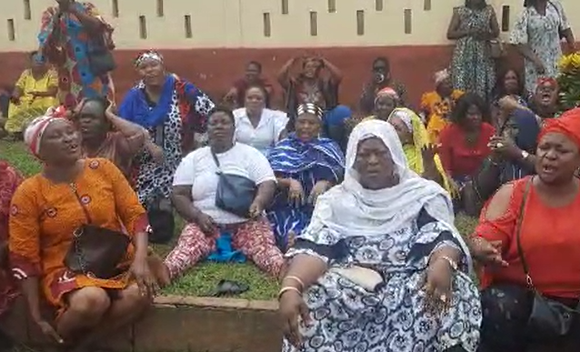PURC To Adjust Tariffs Again On January 1

Just less than four months after increasing tariffs for utility companies, the Public Utility Regulatory Commission (PURC) is set to make a quarterly tariff adjustment announcement again, expected to happen this week.
The review measure, The Anchor understands, will take effect on the New Year Day, January 1, 2023.
The adjustment, according to the PURC, is to reflect changes in macroeconomic variables, such as inflation and exchange rate.
This is notwithstanding a similar announcement in August, this year, when the regulator announced a 27.15% increase in tariff for electricity and 21.55% increase in water tariff, effective September 1, 2022.
This was after the utility companies, including the Electricity Company of Ghana and Ghana Water Company Limited, proposed an increase in tariffs by 148% and 334% respectively.
At the time, the commission justified the upward review of tariffs, despite the worsening cost of living in the country.
Meanwhile, it is unclear if the impending adjustment will lead to an increase or decrease in tariffs, especially at a time the cedi appears to be performing incredibly well after its free fall few months ago.
Inflation, however, keeps increasing, as Ghana’s year-on-year inflation has surged to 50.3 percent in November, up from 40.4 percent in October, according to the Ghana Statistical Service release issued on Wednesday, December 14, 2022.
Even before the announcement is made, some customers of water and electricity have called on the PURC to ensure it does not increase tariffs, citing the unending economic hardship.
According to them, they are already troubled as a result of the economic situation and they are at their wits’ end as at now.
They maintain it will be difficult to pay additional increments in water and electricity, especially immediately after the Christmas festivities, a time parents will be expected to pay school fees and make other expenses.
In the past, the regulator had increased tariffs for service providers, namely the Electricity Company of Ghana (ECG) and the Ghana Water Company Limited (GWCL), citing several reasons for the increments.
The PURC, announcing these increments, cited the poor performance of the cedi against other currencies as one of the major causes.
The head of Research and Cooperate Affairs at the PURC, Dr. Eric Obutey, told the media: “The cedi’s rate against the dollar and inflation are some of the factors we try to correct using the quarterly tariff adjustments.
“We should be expecting an announcement before the close of 2022 because it is supposed to take effect from the 1st of January.”
He explained that the decision was arrived at after rigorous analysis and extensive consultations with industry players, as well as an assessment of the economic conditions of consumers.
The executive secretary, Dr. Ishmael Ackah, in a recent interview, said the commission appreciates the fact that the macroeconomic variables, such as inflation and exchange rate, which are used to increase tariffs, also affect customers of ECG and GWCL.
He assured stakeholders that the commission is committed to ensuring that the utilities are solvent to continue to serve customers, while at the same time, protecting the customer from inefficiencies.
He explained that another important factor that is considered in the quarterly adjustment is the energy mix (the ratio of hydro to thermal and other sources).
Dr. Ackah made these comments during a media engagement at the PURC’s 25th anniversary lecture, held at the Accra International Conference Centre (AICC).
He indicated that the rationale behind the QTA is to reflect changes in macroeconomic variables in the operations of utility service providers, since the effects of these factors are beyond their control.
He further indicated that the implementation of the QTA will go a long way in minimizing the effect of changes in the macroeconomic and market-driven variables, and associated delays in passing on such effects to consumers and utility service providers within the tariff control period.
Dr. Ackah said the regulator was committed to implementing the QTA, indicating the commission has already started the process in line with the statutory provisions in the PURC Act 538.
The Volta River Authority and the Electricity Market Overnight Panel have also submitted data on hydro generation and the projected figures up to March, 2023, he added..
Dr. Ackah advised the utility service providers to be efficient, especially in these trying times, to cut costs.
He also urged customers to monitor their consumption and be efficient to reduce their utility bills.
The ECG had proposed that its tariffs be increased by 148% for 2022 and with 7.6% average adjustments between the periods of 2023 and 2026.
The sharp increase, according to the ECG, was due to the gap between the actual cost recovery tariff and PURC-approved tariffs, as well as the cost of completed projects.
It also argued that, while the average tariff per cubic metre in 2019 was US$1.27, the same was reduced to US$1.13 as a result of cedi depreciation.
The GWCL said this has affected its ability to carry out repairs and replacements of aged and obsolete equipment and pipelines.
Source: Anchorghana




